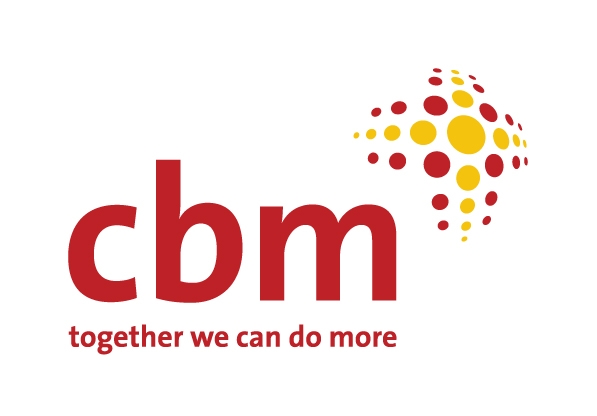“Access for All”
Formation of Access Co-ordination Cell



Accessibility is a human right issue and requires deep understanding and strong specific action. Every human being including persons with disabilities and reduced mobility have right to equal access to sites, services and facilities including information and communication. Accessibility is extremely important, as it plays a crucial and critical role in day to day life, activities of daily living (ADL) development of one’s personality, educational and employment opportunities of their own choice, leisure (tourism) and fun activities.
In our communities, Accessibility and Universal Design is relatively a topic which is not well heard of and understood. There are no proactive initiatives at the policy level also to implement Universal Design. Course curriculum in Schools of Planning and Architecture and Institutes of Design do not have the concept of Universal Design as a fundamental part. This would mean that if we do nothing, our policy makers and planners in architecture and institutes of design would not be able to understand the needs of persons with disabilities (PwDs) and those at risk of disabilities. Promoting accessibility and implementing universal design, is an important step to achieve an inclusive society and PwDs would be able to exercise their freedom to the fullest.
Samarthyam, National centre for Accessible Environments and Mitra Jyoti in association with CBM SARO (S) will organise 6 such workshops in Southern states of India. In the state of Tamil Nadu, universal accessibility issues have not received due attention by policy makers, service providers, stakeholders, engineers, architects, planners and designers. Hence, the second workshop is proposed in Chennai.
Date: 11th-12th August 2011
Venue: YWCA International Guest House, 1086 Poonamallee High Road, (EVR Periyar Salai), Chennai-600 084
Objectives of the workshop:
- Promote “Access for All” in built and transport environment by forming Access Co-ordination Cell
- Capacity building, information sharing and knowledge generation of 30 key persons: a mixed group of Government officials, Architecture & engineering institutes, DPO & NGO members including PwDs; key stakeholders and professionals such as architects, engineers, urban planners, etc. By co-training together, linkages will be formed between PwDs and policy makers, implementing agencies and professionals.
- To develop and enhance the advocacy capacity of Access Coordination Cells and develop an implementation mechanism in Tamil Nadu.
The training sesions will cover:
Legislation and access needs of PwDs; principles of UD; advocacy and representational skills; and strategies for developing of partnerships between PwDs and technical experts; Disability Awareness & Sensitization through Experiential Exercise; mock ups and power point presentations on internal & external design considerations and hands on training on access audit & report making
“Access for All- Access Co-ordination Cell”
2 –day Workshop on Accessibility
Session Details
11th August 2011
Registration | 9.00am |
Inauguration with opening remarks Brief orientation to Project on formation of Access Co-ordination Cell- including aims and objectives | 9.30-9.50am |
Ice breaking- Introduction of participants Access perceptions and terminology- Group discussion | 9.50-10.10am |
Universal Accessibility: Prevailing Legislations, Guidelines and building codes | 10.10-10.30am |
Tea Break | 10.30-10.45am |
Technical Sessions | |
Simulation (Experiential) Exercise | 10.45-11.45 am |
Simulation feedback | 11-45-12.00noon |
Understanding barriers –attitudinal & physical environment | 12.00-12.20pm |
External & Internal Environment Design Considerations | 12.20-1.00pm |
Lunch break | 1.00-2.00pm |
Functions of Access Features: Why certain access features are needed? (Mock ups of toilets, corridors, etc.) | 2.00-3.00pm |
Design innovations in rural India | 3.00-3.15pm |
Tourism for All– a case study of Dilli Haat, New Delhi | 3.15-3.30pm |
Group discussion | 3.30-3.45pm |
Tea Break | 3.45-4.00pm |
Presentation of guidelines on how to conduct an access audit | 4.00-4.15pm |
Understanding Access Audit Checklist | 4.15-4.40pm |
Group activity- Identification of groups, debriefing and task marking for access audit | 4.40-5.30pm |
12th August 2011
Access Audit of workshop venue | 9.00am- 12.00pm |
Group activity- Report making by participants | 12.00 – 1.00pm |
Lunch break | 1.00- 2.00pm |
Group activity- Report making by participants | 2.00 – 4.00pm |
Tea break | 3.45-4.00pm |
Setting up the venue for report presentation | 4.00-4.20pm |
Group activity- Report presentation by two groups Comprehensive solution with illustrations 20 min. each group | 4.20- 5.00pm |
Tips on Model report compilation and presentation | 5.00-5.10pm |
Action plan – Formation of Access Co-ordination Cell Building relationships and way forward | 5.10-5.45pm |
For more information regarding the workshop, pl contact:
Ms. Anjlee Agarwal: 09810558321, 09711190806, email: samarthyaindia@yahoo.com
Ms. Madhu Singhal (M) 09741224889 email: madhu.singhal59@gmail.com